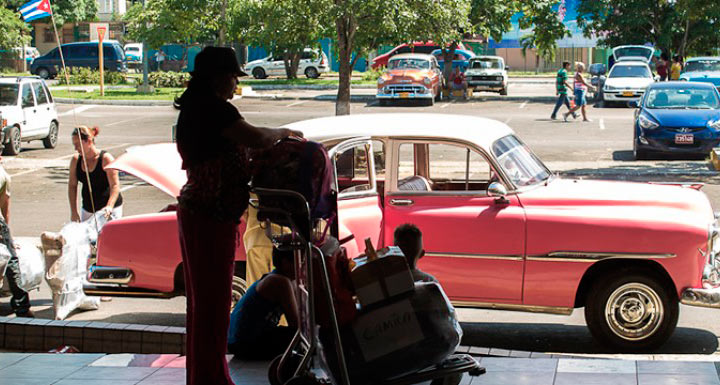
Trade between Miami and Havana
HAVANA – All that’s necessary is to read the official Cuban press to measure the volume and nature of the complaints of citizens who consider themselves aggrieved by the Customs regulations regarding the non-commercial importation of goods.
I would like to refer to an issue related to these measures that has barely been mentioned and concerns their impact on the trade between Miami and Havana (i.e., Cuba) and its consequences for Cuba’s relations with the United States.
Both governments practically ignore the existence of this market and few are the studies that broach the subject.
I’m talking about the traffic of more than half a million people a year, which implies maintaining a large infrastructure of sales and airport business in both countries. Add to this the impact of these people on the local markets when they come in extended visits.
Also, billions of dollars in remittances and a similar amount in the commerce of goods are involved.
People always talk about the revenues this market brings to Cuba, but they seldom talk about its advantages for Miami. In fact, an entire network of small local businesses in Miami exists, thanks to these activities, which provided employment to thousands of people. This, in part, explains the support elicited by any policy aimed at expanding such activities.
To the Cuban-American far right, this is a flagrant and massive violation of the blockade against Cuba, and they’re right to say so. For this reason, the U.S. government has tried to slow down this commerce through regulations, persecution and bureaucratic obstacles of every kind.
The result has been that, although on occasion the U.S. has managed to limit it, it has never been able to eliminate it, because it responds to objective and sentimental needs that no government can ignore.
Precisely for this reason, Cuban policy toward this commerce is at times hard to understand. When travel to Cuba began in 1979, the opening was widely supported by Miami businessmen — until the moment when the terrorists started to set off bombs at their places of business.
It was decided then to open the “community stores” and the importation of goods was severely restricted. Perhaps, given the conditions of the period, it was an effective economic measure to earn hard currency but, long-range, it was bad politics because the “dialogue” with Cuba lost a fundamental base of support.
Today, that measure is even less justifiable because, since the establishment of the dual currency, the hard-currency stores (TRDs) stopped performing that function and devoted themselves to collecting national currency, which implies an expenditure in hard currency to supply the state-run markets.
This economic logic explains the high prices, the shortages of supplies and the bad quality of the goods sold by those stores, provoking the general displeasure.
It is true that, lacking a significant increase in national production and state subsidy of the basic services to the population, the domestic economic balance demands mechanisms to raise money.
But perhaps this can be achieved through reasonable Customs tariffs and taxes, as well as other measures that do not encourage the black market and improve the supply of goods, without implying an economic burden for the state.
I don’t say they don’t exist – obviously, they must exist – but I personally don’t know any Cuban economist who would rebut this argument.
Clearly, it is easier to say it than to do it, but I believe that Cuba has to look at the market created by the émigrés from a standpoint different than the standpoint it has used heretofore.
This is called for by the new immigration policy, the existence of hundreds of thousands of Cuban collaborators abroad, the ongoing economic reforms and the policy toward the United States. Obviously, a change in “mentality” is needed.
Cubans’ economic ties with their homeland is a basic factor for an improvement in relations with the émigré community, as Cuban politics hopes. In the case of Miami, this has a significant impact in U.S. policy toward Cuba, as shown by the latest surveys made by diverse U.S. institutions.
The issue then is to look at the situation with realism and to shed any prejudices that contradict the economic reforms carried out by the government.
Rather than conceiving it from a pejorative perspective, taking measures that are unpopular in Cuba and abroad, we must find a way to organize this commerce, not only to facilitate it but also to dignify it to the point that it will look like it really is: a mutually beneficial manifestation of the natural ties between the country and its émigrés.

